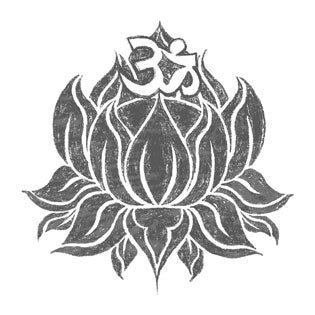yadā sanharate chāyaṁ kūrmo ’ṅgānīva sarvaśhaḥindriyāṇīndriyārthebhyas tasya prajñā pratiṣhṭhitā One who is able to withdraw the senses from their objects, just as a tortoise withdraws its limbs into its shell, is established in divine wisdom. Attempting to quench the cravings of the senses by supplying them with their desired objects is like trying to dowse … Continue reading [Bhagavad Gita] – Chapter 2 verse 58
Month: September 2019
[Bhagavad Gita] – Chapter 5 verse 24
yo 'ntaḥ-sukho 'ntar-ārāmas tathāntar-jyotir eva yaḥsa yogī brahma-nirvāṇaṁ brahma-bhūto 'dhigachchhatiThose who are happy within themselves, enjoying the delight of God within, and are illumined by the inner light, such yogis are united with the Lord and are liberated from material existence. “Inner light” is the divine knowledge that is bestowed from within in the form … Continue reading [Bhagavad Gita] – Chapter 5 verse 24
Aigiri Nandini
It is called as Mahishasura Mardini Stotram or Mahishasur Maridhini Sloka is a very popular devotional stotra of GoddessDurga written by Guru Adi Sankaracharya (Sri Sri Sri Shankara Bhagavatpadacharya). This devotional verse is addressed to Goddess Mahisasura Mardini, the Goddess who killed Demon Mahishasura. Mahisasura Mardini is the fierce form of Goddess Durga Maa (an incarnation of Goddess … Continue reading Aigiri Nandini
[Bhagavad Gita] – Chapter 13 verse 8,9,10,11,12
amānitvam adambhitvam ahinsā kṣhāntir ārjavamāchāryopāsanaṁ śhauchaṁ sthairyam ātma-vinigrahaḥindriyārtheṣhu vairāgyam anahankāra eva chajanma-mṛityu-jarā-vyādhi-duḥkha-doṣhānudarśhanamasaktir anabhiṣhvaṅgaḥ putra-dāra-gṛihādiṣhunityaṁ cha sama-chittatvam iṣhṭāniṣhṭopapattiṣhumayi chānanya-yogena bhaktir avyabhichāriṇīvivikta-deśha-sevitvam aratir jana-sansadiadhyātma-jñāna-nityatvaṁ tattva-jñānārtha-darśhanametaj jñānam iti proktam ajñānaṁ yad ato ’nyathā Humbleness; freedom from hypocrisy; non-violence; forgiveness; simplicity; service of the Guru; cleanliness of body and mind; steadfastness; and self-control; dispassion toward the objects of the … Continue reading [Bhagavad Gita] – Chapter 13 verse 8,9,10,11,12
Carnatic Music – Guruvayurappane
NameGuruvayurappane Ragam Reethigowla Aarohanam S G2 R2 G2 M1 N2 D2 M1 N2 N2 S Avarohanam S N2 D2 M1 G2 M1 P M1 G2 R2 S Taalam Aadi Composer Ambujam Krishnan Language Tamil pallavi guruvAyUr appanE appan - shrI krSnan(guruvAyUr) anupallavi nArAyaNa ena nAvAra azhaippOrkku varumiDar tavirttu vAncaiyuDan kAkkum(guruvAyUr) caraNam 1 vizhikaTkamu-dUTTum ezhil tirumEni … Continue reading Carnatic Music – Guruvayurappane
Carnatic Music – Raga Ratna Malickache
Name Raga Ratna Malickache Ragam Reethigowla Aarohanam S G2 R2 G2 M1 N2 D2 M1 N2 N2 S Avarohanam S N2 D2 M1 G2 M1 P M1 G2 R2 S Taalam Roopakam ComposerShri Thyagaraja Swami Language Telugu pallavi rAga ratna mAlikacE ranjillunaTa hari shata anupallavi bAga sEvinci sakala bhAgyamandudamu rArE caraNam 1 naigama SaDAstra purANAgamamArtha … Continue reading Carnatic Music – Raga Ratna Malickache
Hanuman Chalisa and Sankat Mochan Ashtak
Hanuman Chalisa Doha Shri Guru Charan Sarooja-raj Nija manu Mukura SudhaariBaranau Rahubhara Bimala Yasha Jo Dayaka Phala ChariBudhee-Heen Thanu Jannikay Sumirow Pavana KumaraBala-Budhee Vidya Dehoo Mohee Harahu Kalesha Vikaara Chopai Jai Hanuman gyan gun sagarJai Kapis tihun lok ujagar Ram doot atulit bal dhamaAnjaani-putra Pavan sut nama Mahabir Bikram BajrangiKumati nivar sumati Ke sangi Kanchan … Continue reading Hanuman Chalisa and Sankat Mochan Ashtak
Carnatic Music – Evari Bodhana
Name Evari Bodhana Ragam Abhogi Aarohanam S R2 G2 M1 D2 S Avarohanam S D2 M1 G2 R2 S Taalam Aadi Composer Patana Subramanya Iyer Language Telugu pallavi evari bOdhanavini IlAgu jEsEvurA anupallavi javamuga nannElarA shESAcalEndra shrI venkaTEshA caraNam 1 mArubAri kOrvajAlanurA https://www.youtube.com/watch?v=0OAWgnKnUmU
[Bhagavad Gita] – Chapter 13 verse 7
ichchhā dveṣhaḥ sukhaṁ duḥkhaṁ saṅghātaśh chetanā dhṛitiḥ etat kṣhetraṁ samāsena sa-vikāram udāhṛitamDesire and aversion, happiness and misery, the body, consciousness, and the will—all these comprise the field and its modifications. Shree Krishna now elucidates the attributes of the kṣhetra (field), and its modifications thereof: Body. The field of activities includes the body, but is much more than … Continue reading [Bhagavad Gita] – Chapter 13 verse 7
[Bhagavad Gita] – Chapter 3 verse 37
śhrī bhagavān uvāchakāma eṣha krodha eṣha rajo-guṇa-samudbhavaḥmahāśhano mahā-pāpmā viddhyenam iha vairiṇamThe Supreme Lord said: It is lust alone, which is born of contact with the mode of passion, and later transformed into anger. Know this as the sinful, all-devouring enemy in the world. The Vedas use the word kām, or lust, not only for sexual desires … Continue reading [Bhagavad Gita] – Chapter 3 verse 37

You must be logged in to post a comment.